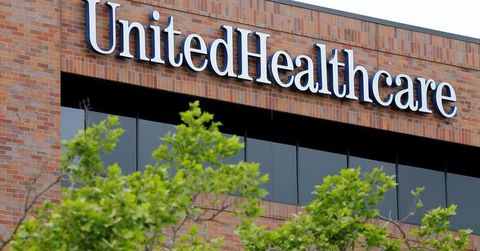UnitedHealth Group is a healthcare company based in Minnetonka, Minnesota, that offers health insurance, healthcare services, and data analytics services to individuals, employers, and government agencies in the United States and internationally. The company was founded in 1977 and has become a leader in the healthcare industry.
In 2020, UnitedHealth Group reported total revenues of $257.1 billion, up from $242.2 billion the previous year. The company’s revenue growth was driven by strong performance across its various business segments, including its health insurance and Optum subsidiaries.
UnitedHealth Group is the largest health insurer in the United States, with a market share of over 15%. The company provides health insurance plans to individuals and employer groups, including Medicare Advantage and Medicaid plans. In 2020, the company’s health insurance business generated revenues of $192.3 billion.
Optum is UnitedHealth Group’s health services subsidiary, which provides a range of healthcare services and data analytics solutions to healthcare providers, employers, and government agencies. In 2020, Optum generated revenues of $136.3 billion, up from $112.8 billion in 2019.
UnitedHealth Group has a workforce of over 325,000 people worldwide, making it one of the largest employers in the healthcare industry. The company is committed to diversity and inclusion and has been recognized as one of the “World’s Most Admired Companies” by Fortune magazine for several years in a row.
During the COVID-19 pandemic, UnitedHealth Group played a critical role in providing healthcare services and support to patients and providers. The company launched several initiatives to expand access to telehealth services, increase testing and treatment options, and support healthcare workers on the front lines of the pandemic.
Overall, UnitedHealth Group is a major player in the healthcare industry, with a broad range of capabilities and a strong track record of growth and innovation. The company’s size and scale give it a significant competitive advantage, and its commitment to improving healthcare outcomes for patients and communities around the world make it a valuable partner for individuals, employers, and governments alike.
Founding History of UnitedHealth Group
UnitedHealth Group was founded in 1977 by Richard Burke and his friend and business partner, Jack McBride, in Minnetonka, Minnesota. The company was initially called UnitedHealthCare Corporation and focused on providing health insurance plans to individuals and employer groups in the Upper Midwest region of the United States.

In the early years, UnitedHealthCare faced a number of challenges, including regulatory hurdles and intense competition from established players in the healthcare industry. However, the company was able to grow its business by offering innovative products and services that met the changing needs of its customers.
One of the key factors in UnitedHealthCare’s early success was its emphasis on preventive care and wellness programs. The company recognized that investing in these areas could help reduce healthcare costs over the long term, and it worked closely with healthcare providers and employers to develop and implement these initiatives.
In the 1990s, UnitedHealthCare expanded its operations beyond its home state of Minnesota, acquiring a number of other health insurance companies and related businesses. These acquisitions helped to fuel the company’s growth and establish it as a major player in the healthcare industry.
In 1998, UnitedHealthCare changed its name to UnitedHealth Group to better reflect the broad range of services it offered beyond health insurance. The company continued to grow and diversify its business over the next two decades, acquiring Optum, a health services and information technology company, in 2011.
Today, UnitedHealth Group is a leading provider of health insurance, healthcare services, and data analytics solutions, with operations in the United States and around the world. The company’s success is a testament to its founders’ vision and determination to build a better healthcare system that improves outcomes for patients and communities.
Marketing Strategies of UnitedHealth Group
UnitedHealth Group, being a healthcare company, has implemented a variety of marketing strategies to reach its target audience and promote its products and services. Some of the key marketing strategies employed by the company are:
Branding and advertising: UnitedHealth Group has invested heavily in building a strong brand image and promoting its products and services through advertising campaigns. The company has run several high-profile advertising campaigns, including its “Health in Numbers” campaign, which emphasizes the importance of data-driven healthcare solutions.
Content marketing: The company has developed a content marketing strategy to provide informative and educational resources to its customers. The company’s website features a range of articles, videos, and other resources related to health and wellness, insurance, and healthcare services.
Partnership and collaboration: UnitedHealth Group has formed strategic partnerships with other organizations to expand its reach and offer new products and services to its customers. For example, the company has partnered with Walgreens to offer its Medicare Advantage plans to seniors at Walgreens retail clinics.
Digital marketing: The company has embraced digital marketing channels, such as social media and search engine marketing, to reach its target audience. UnitedHealth Group has a strong presence on social media platforms, such as Facebook and Twitter, and uses these channels to engage with customers and promote its products and services.
Thought leadership: UnitedHealth Group has established itself as a thought leader in the healthcare industry by publishing research reports and participating in industry events and conferences. The company’s research and thought leadership initiatives help to position it as an authority in the healthcare industry and attract new customers.
Overall, UnitedHealth Group’s marketing strategies are focused on building a strong brand image, providing informative and educational resources to its customers, and reaching its target audience through a variety of channels. The company’s marketing efforts have helped it to establish a strong position in the healthcare industry and expand its business over the years.
SWOT Analysis of UnitedHealth Group
SWOT analysis is a framework used to evaluate the strengths, weaknesses, opportunities, and threats of a company. Here is a SWOT analysis of UnitedHealth Group:
Strengths:
Strong market position: UnitedHealth Group is the largest health insurance provider in the United States and has a strong presence in the healthcare industry.
Diversified revenue streams: The company offers a range of products and services, including health insurance, healthcare services, and data analytics solutions, which help to diversify its revenue streams.
Strong financial position: UnitedHealth Group has a solid financial position, with strong revenue growth and profitability.
Technological innovation: The company has invested in technology and innovation to develop new healthcare solutions and improve patient outcomes.
Weaknesses:
Dependence on the US market: UnitedHealth Group generates a significant portion of its revenue from the US market, which makes it vulnerable to changes in the US healthcare industry.
Regulatory risk: The healthcare industry is highly regulated, and changes in regulations could impact the company’s operations and profitability.
Concentration of customers: A significant portion of the company’s revenue comes from a small number of large customers, which increases the risk of losing business if these customers choose to go with a competitor.
Opportunities:
Expansion into international markets: UnitedHealth Group has the opportunity to expand its operations into international markets, which would help to diversify its revenue streams and reduce dependence on the US market.
Growing demand for healthcare services: The aging population and increasing prevalence of chronic diseases are creating a growing demand for healthcare services, which presents an opportunity for UnitedHealth Group to expand its business.
Digital healthcare: The shift towards digital healthcare solutions presents an opportunity for UnitedHealth Group to develop new products and services that leverage technology to improve patient outcomes.
Threats:
Intense competition: The healthcare industry is highly competitive, and UnitedHealth Group faces competition from established players as well as new entrants.
Changing regulations: Changes in regulations could impact the company’s operations and profitability, and the political environment could make it difficult for the company to achieve its business goals.
Cybersecurity threats: The company faces cybersecurity threats, which could lead to data breaches and damage the company’s reputation.
Overall, UnitedHealth Group has a strong market position, diversified revenue streams, and a solid financial position. However, the company faces challenges from intense competition, changing regulations, and cybersecurity threats, which could impact its operations and profitability. The company has opportunities to expand into international markets, leverage technology to develop new healthcare solutions, and capitalize on the growing demand for healthcare services.
Segmentation, Targeting, Positioning (STP) of UnitedHealth Group
STP stands for Segmentation, Targeting, and Positioning, which are the key components of a company’s marketing strategy. Here is an overview of the STP of UnitedHealth Group:
Segmentation: UnitedHealth Group segments its market based on various factors, such as age, gender, income, and health status. The company offers a range of products and services that cater to different segments of the market. For example, the company’s Medicare Advantage plans are targeted towards seniors, while its employer-sponsored health insurance plans are targeted towards working-age adults.
Targeting: UnitedHealth Group targets different segments of the market with different products and services. The company’s Medicare Advantage plans are targeted towards seniors, who are the largest and fastest-growing segment of the US population. The company’s employer-sponsored health insurance plans are targeted towards working-age adults, who are the largest group of healthcare consumers in the US. Additionally, the company targets large employers and government agencies as its key customers, as they have the purchasing power to negotiate favorable terms.
Positioning: UnitedHealth Group positions itself as a leading provider of healthcare solutions that improve patient outcomes, reduce costs, and increase access to care. The company’s brand is built around its focus on innovation, technology, and data analytics, which it uses to develop new healthcare solutions and improve the quality of care. The company also positions itself as a trusted partner to its customers, offering personalized support and guidance to help them navigate the complex healthcare system.
Overall, UnitedHealth Group’s marketing strategy is focused on segmenting the market, targeting different customer groups with tailored products and services, and positioning itself as a leader in healthcare innovation and customer service. This approach has helped the company to establish a strong market position and differentiate itself from competitors in the highly competitive healthcare industry.
Also Read: Johnson & Johnson – A Healthcare Legacy Of Over A Century
Revenue and Growth of UnitedHealth Group
UnitedHealth Group is one of the largest healthcare companies in the world, with a diverse portfolio of products and services. The company’s revenue has grown steadily over the years, driven by a combination of organic growth and strategic acquisitions.
According to the company’s financial reports, UnitedHealth Group’s 2022 revenues grew $36.6 billion or 13% year-over-year to $324.2 billion with double digit growth at both Optum and UnitedHealthcare, driven primarily by serving more people and by serving them more comprehensively.
The UnitedHealthcare segment generated revenue of $197.1 billion in 2020, up from $188.5 billion in 2019. This growth was driven by increased enrollment in the company’s Medicare Advantage plans and higher premium rates. The Optum segment generated revenue of $136.3 billion in 2020, up from $113.1 billion in 2019. This growth was driven by increased demand for healthcare services, particularly in the areas of pharmacy and behavioral health.
In terms of growth, UnitedHealth Group has been consistently expanding its business through strategic acquisitions and partnerships. In recent years, the company has made several major acquisitions, including the purchase of pharmacy benefit manager Catamaran in 2015 and the acquisition of Surgical Care Affiliates in 2017.
UnitedHealth Group has also been investing heavily in technology and data analytics to improve the quality and efficiency of healthcare delivery. The company’s Optum subsidiary has developed a range of advanced healthcare analytics tools, which it uses to identify trends and insights that can improve patient outcomes and reduce costs.
Overall, UnitedHealth Group’s strong revenue growth and strategic investments have helped the company to maintain its market position as one of the leading healthcare providers in the world. With a focus on innovation and expansion, the company is well-positioned to continue driving growth in the years ahead.
To read more content like this, subscribe to our newsletter



